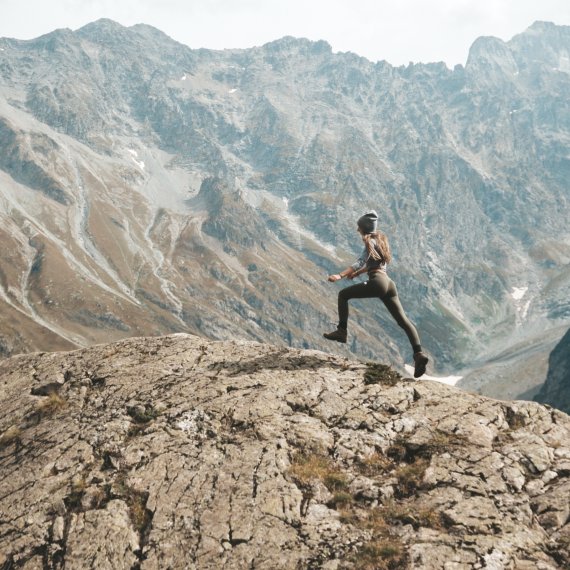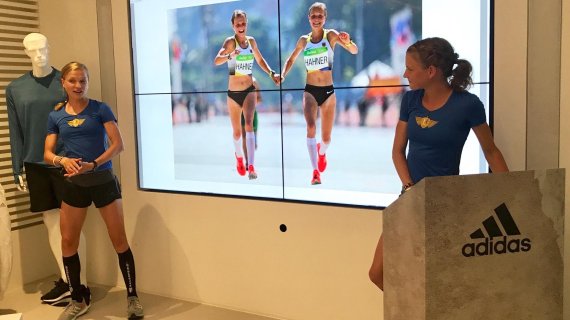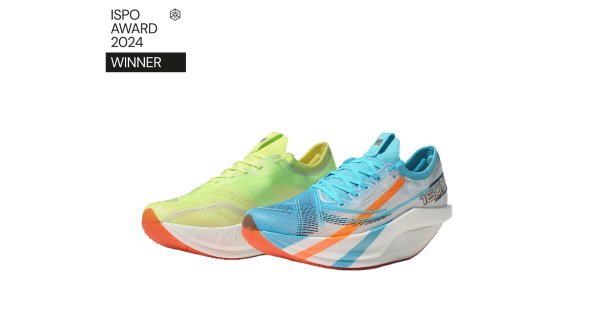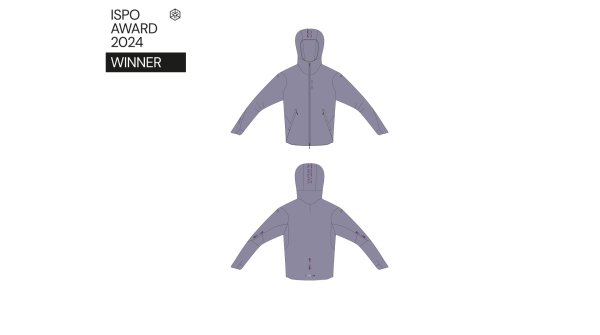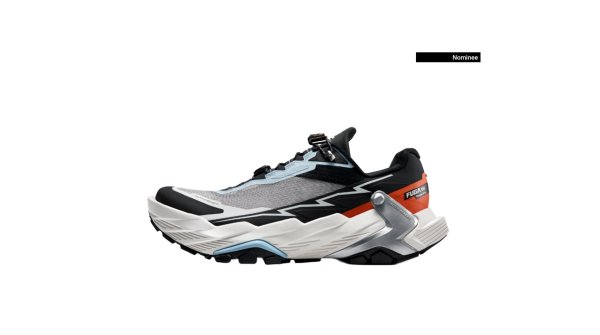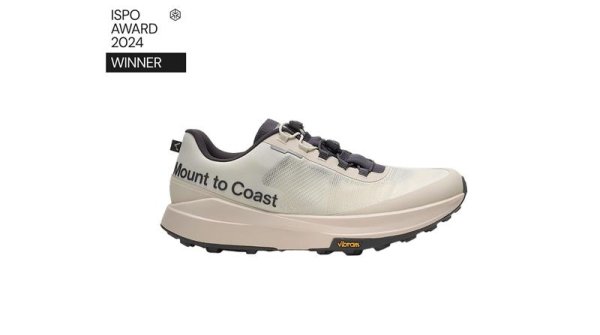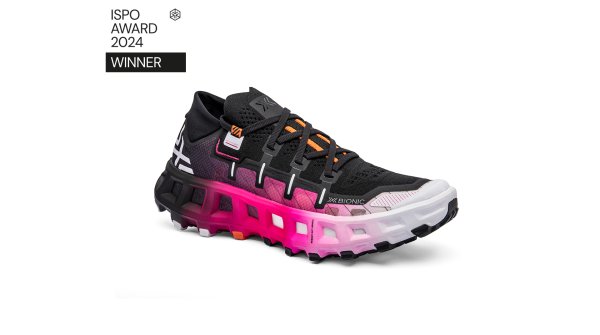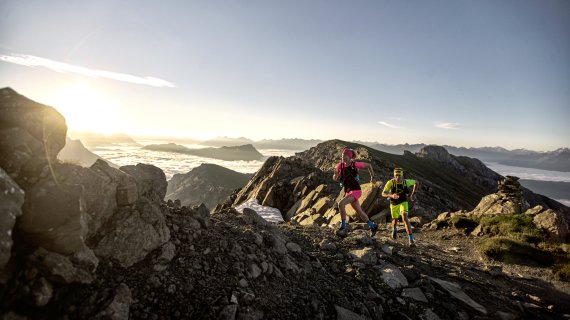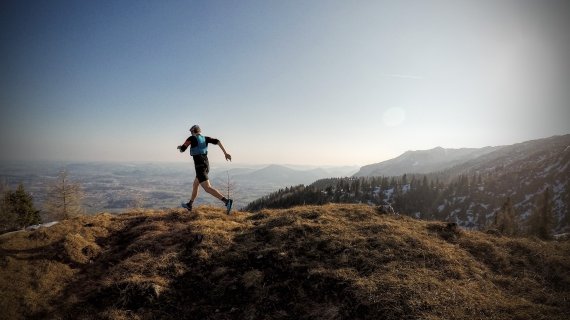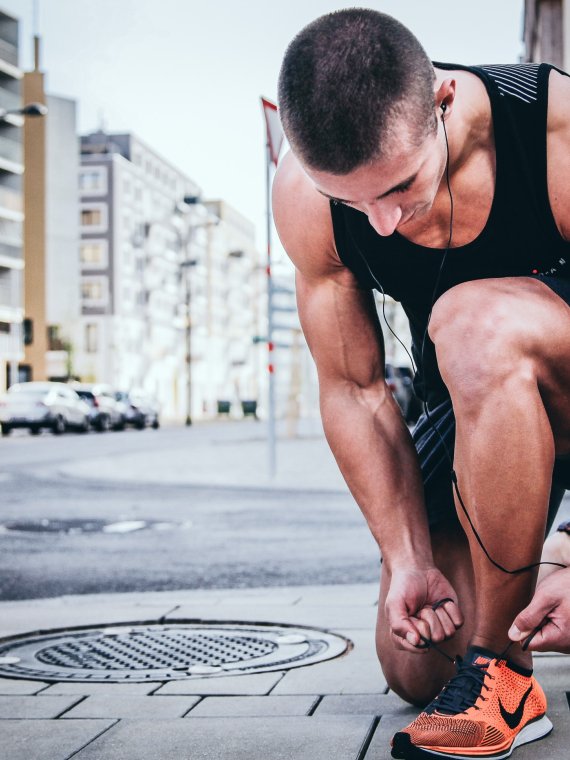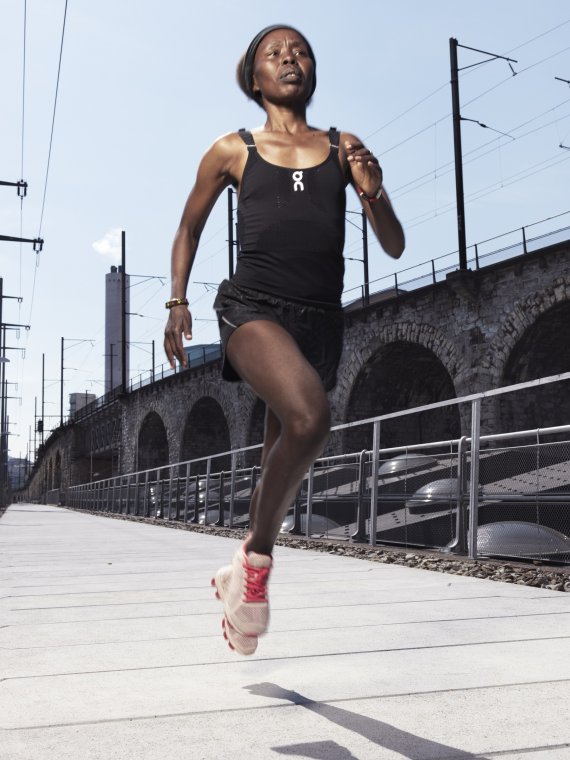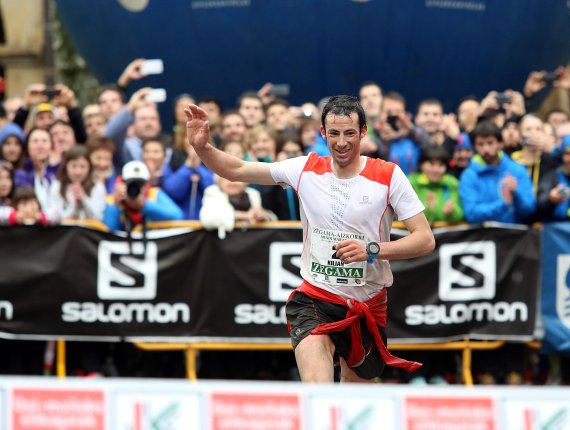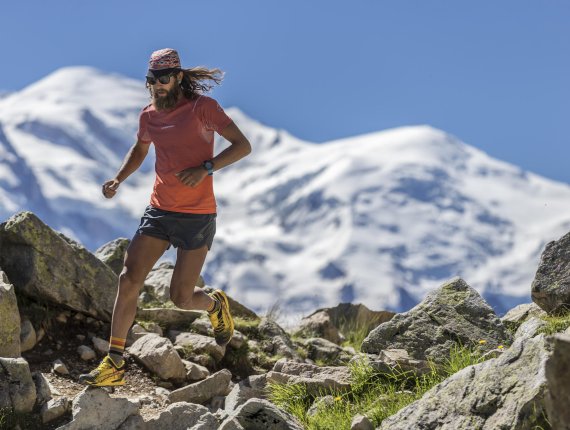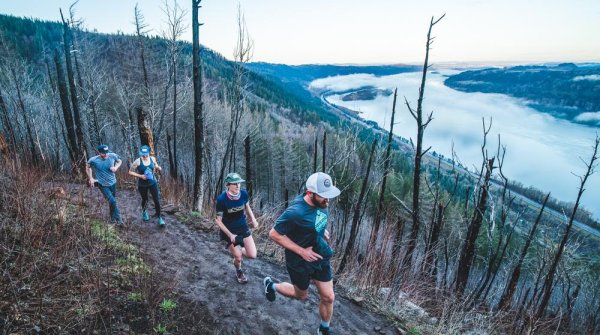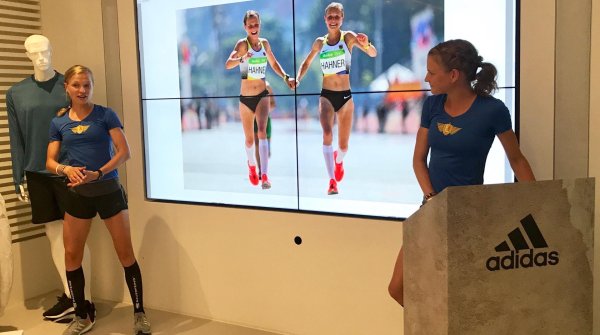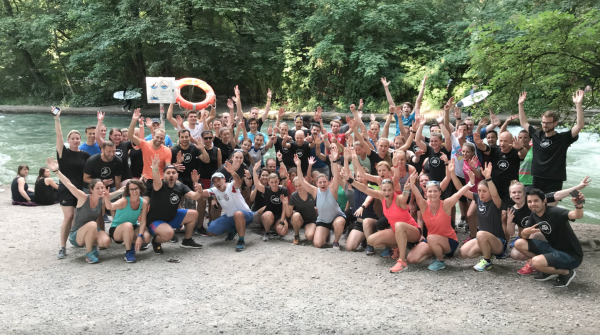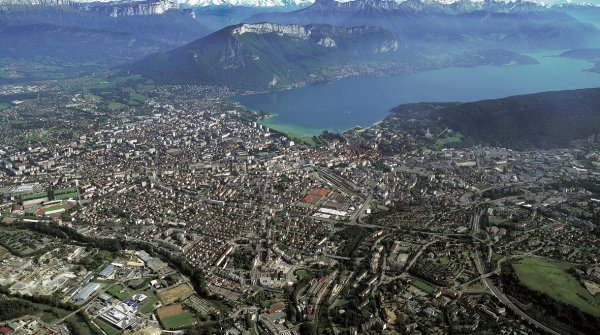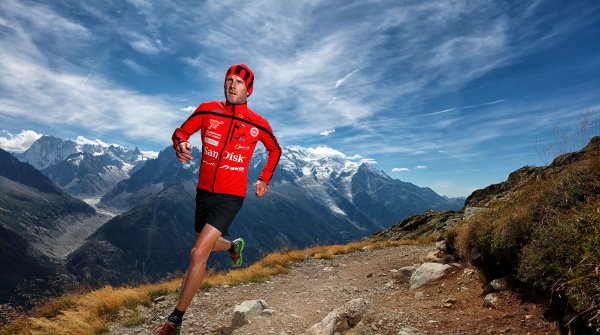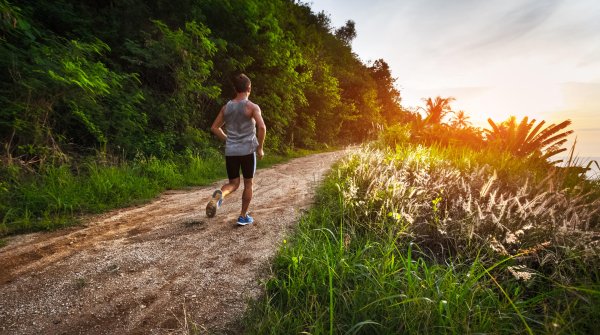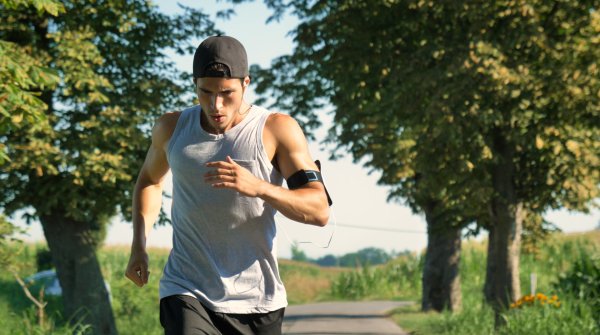Running: Knowing how it's done
Running is one of the most natural and oldest sports of all. It has been proven to make people happy, keep them fit, help them build up their fitness, strengthen the cardiovascular system and also works as supplementary training for other sports. It is also extremely versatile, if you think of road running competitions, jogging in leisure time, trail running in the mountains, marathons or ultra running. Walking and Nordic walking could also be added as trend sports that are easier on the joints. There are also many training methods, be it targeted interval training, forward, backward, sideways, i.e. running school, on a wide variety of surfaces.
What makes marathons so fascinating? What are the latest trends in running? And how many calories do I burn while running anyway? Whether you're an occasional runner or a long-distance pro, here you'll find the most important news and inspiration on running in terms of products and training methods, compiled by the ISPO.com editorial team. Get essential insights on products and training methods here.
Running is often a proven way to burn calories and lose weight, but how much do you actually burn? In fact, the exact figure is not quite so sweeping and depends, for example, on factors such as gender, age, body mass, load intensity, duration and metabolism. One kilocalorie per kilogram of body weight per kilometer - at least that's a common formula for calculating calorie consumption. So if you cover a certain distance faster, you burn more calories for the half hour or hour. And the more you weigh, the higher your energy requirements. A 60 kg runner, for example, burns around 2530 calories in a marathon, regardless of how long it takes her to cover the distance. No matter how fast or far, of course, the old runner's adage "however slow you run, you'll beat anyone who stays home" always applies. It's also more fun with new equipment and the right products.
The magic marathon distance entwine history and myths. Many have heard that the length of the course was the exact distance between Marathon and Athens, which a messenger traveled to announce victory. Although marathon competitions were later held in ancient Greece, the modern marathon length of 42.195 kilometers was derived from the distance from Windsor Castle to the stadium of the 1908 Olympic Games in London. Even today, the enthusiasm for the longest Olympic distance remains unbroken for many - running a marathon once is high on the list of many endurance sports enthusiasts.
Trail running does not have to take place in the mountains; in the broadest sense, it already means running in nature, far away from asphalt, i.e. also on simple gravel and forest paths. Hills, climbs and altitude meters are nevertheless part of the experience for most trail runners. But you don't always run on a trail either, it includes different surfaces, from rock and gravel to grass, mud and sometimes snow. Depending on the incline, uphill is also alternated between walking and running and, if necessary, poles are taken to help. Trail running is all about experiencing nature and adventure in the fresh air, alone or in a group.
There are now a variety of products designed specifically for trail running, such as running backpacks to store equipment or running shoes with a stronger profile to be safe on the road.
Paris, London or Berlin, New York, Boston or Chicago, Tokyo, Hong Kong or Melbourne - it's hard to imagine a big city today without a marathon. The sport of running has long since become a travel and economic factor. These are five of the most beautiful city destinations for the marathon.
As long as running has been around, a lot has happened for affine runners. Wearables, i.e. wearable technology, have long been indispensable for many runners. GPS watches or smartwatches track distance, pace, pulse and more. Training data can be analyzed and compared after the run via the smartphone and linked apps such as Strava or Runtastic. This data can be used to adjust, optimize and target training. Our digital lifestyle and social changes do not stop at running and also influence running. Whether Everesting or a multitude of running beginners through Corona, on ispo.com you stay up-to date with the trends.
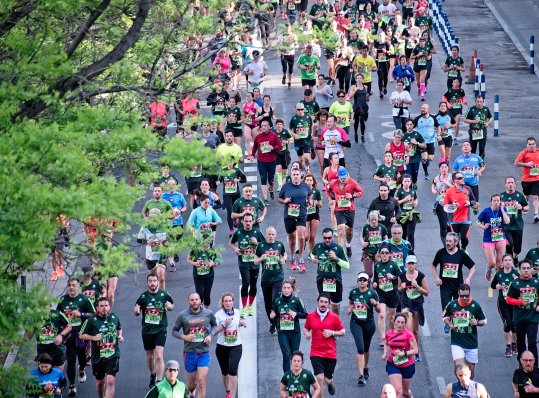
If we draw a comparison with the animal kingdom, humans are more likely to be endurance runners and endurance specialists, because the human body is extremely good at regulating temperature and oxygen supply over long distances and, in prehistoric times, was thus able to drive its prey to exhaustion in groups. According to experts, this could also be the reason why there are only minor differences in performance between different age groups and genders when running with similar training. Nevertheless, running is classified as a high-impact sport whose stress on joints and muscles should be taken into account in training.
Good to know: When push comes to shove, an athletic young person could outrun a T-Rex; Usain Bolt, as the fastest man in the world, can certainly do it. So it's better to leave the eScooter behind in a pinch.

Without the right sound, many fitness athletes feel less capable when running. And not without reason: The right sounds and melodies can actually have a positive effect on motivation and performance.
Find out here what effect the right beats have on motivation and endurance and what you should definitely look out for when choosing music.
